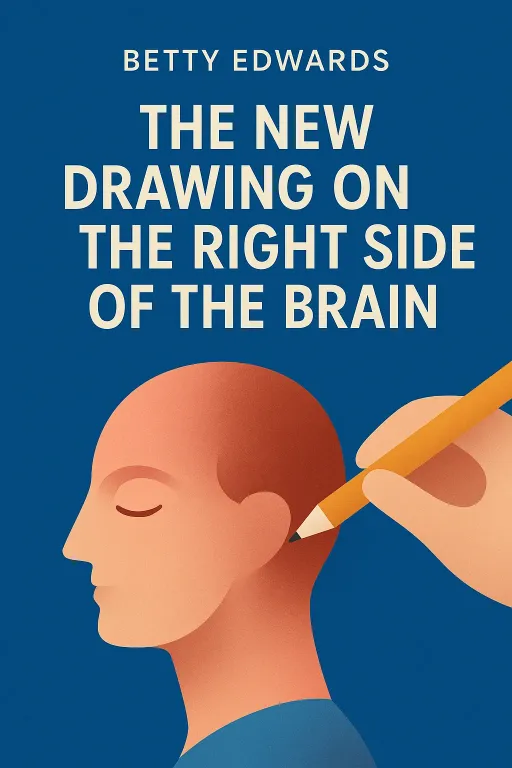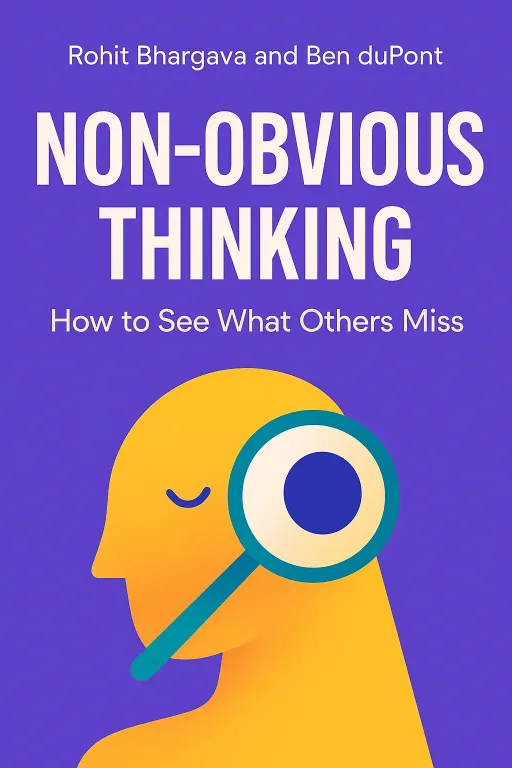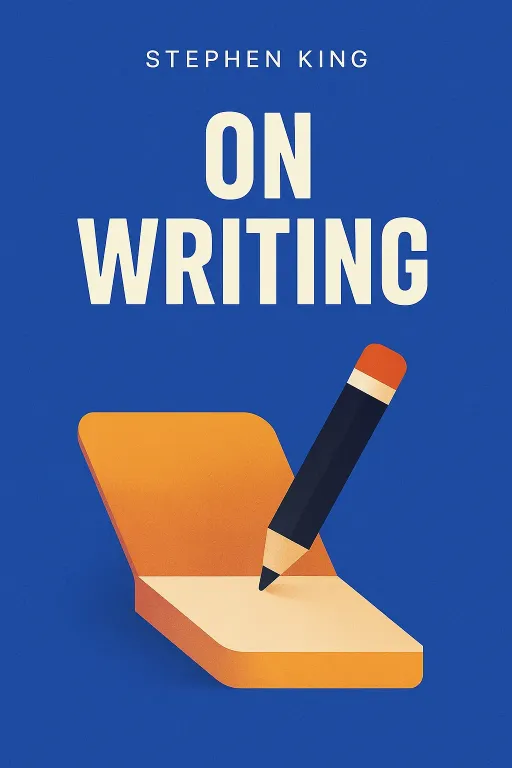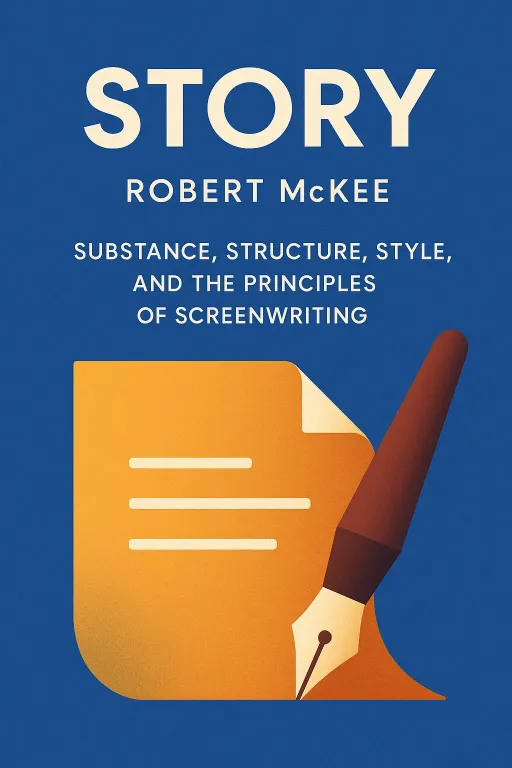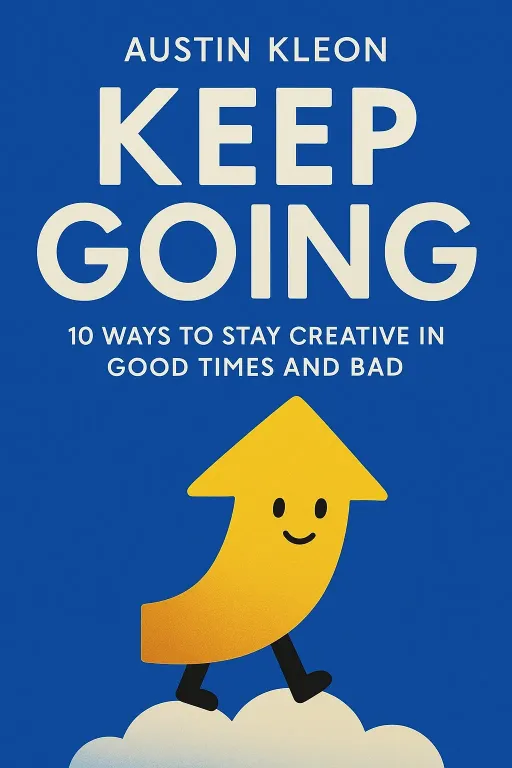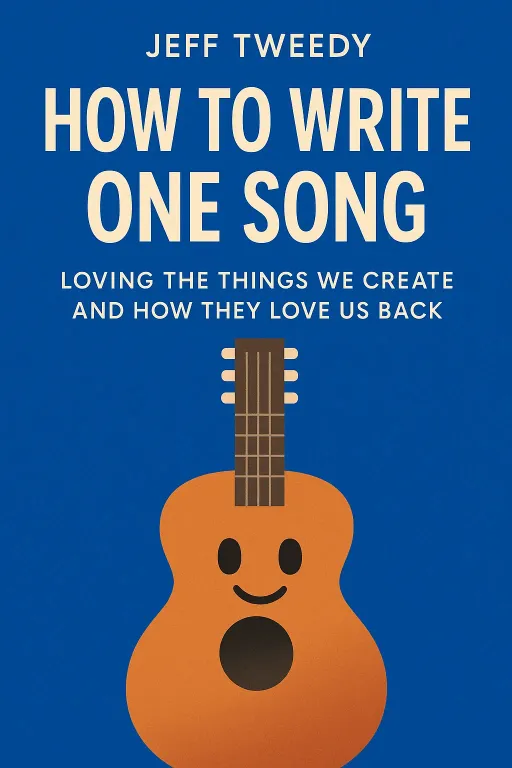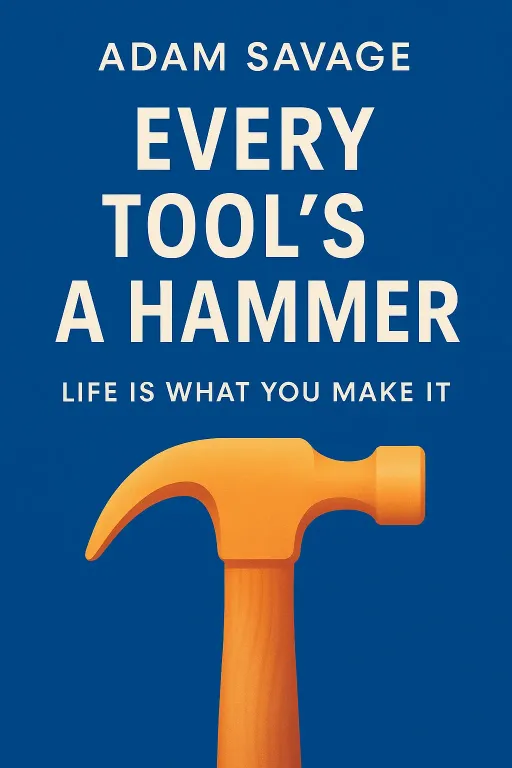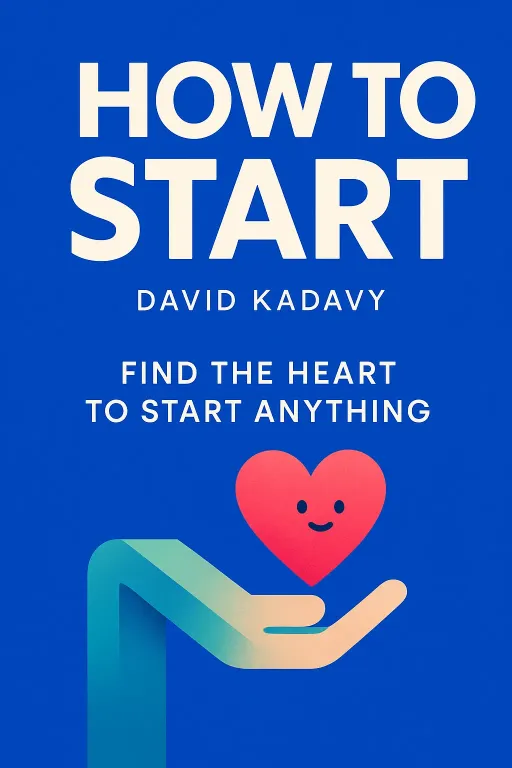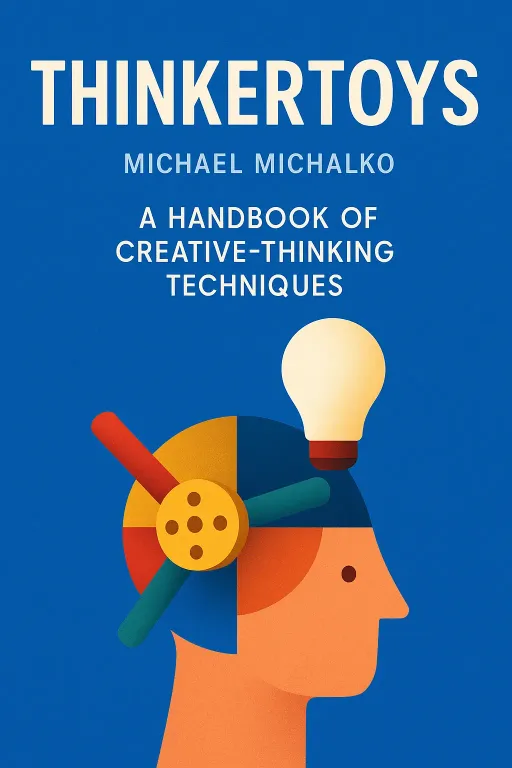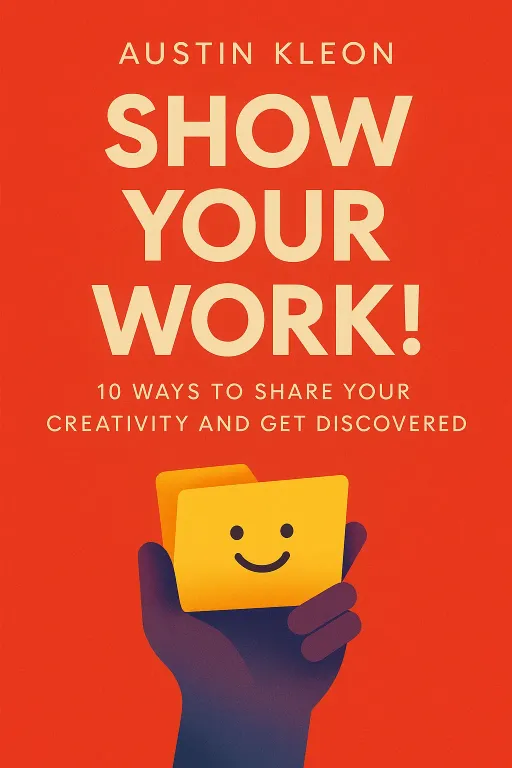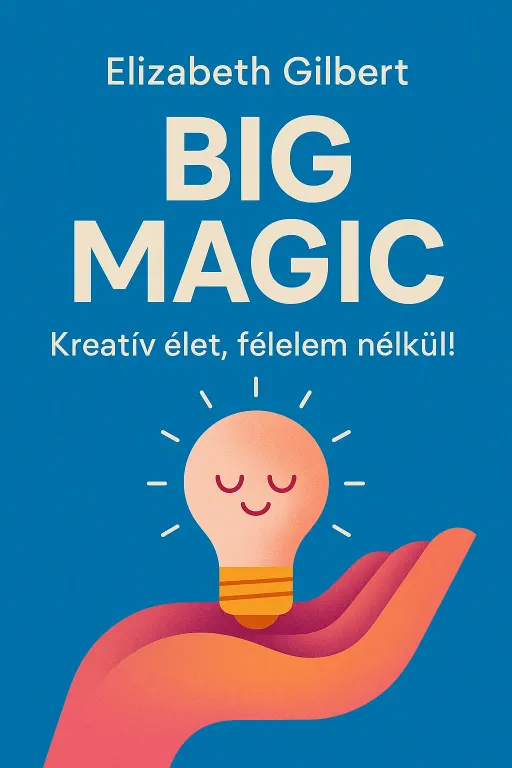
Is Your Idea Ghosting You?
13 minCreative Living Beyond Fear
Golden Hook & Introduction
SECTION
Rachel: You know that classic image of the tortured artist? Starving, suffering for their craft, pouring their blood, sweat, and tears onto the canvas? Justine: Oh yeah. The Van Gogh stereotype. Miserable but a genius. The idea that you have to be in agony to create something truly profound. Rachel: Exactly. Well, today’s book argues that’s not just a cliché—it’s a trap. And that true creativity might actually require… a sense of humor and a day job. Justine: A day job? That's a bold take. I feel like every creative guru says to quit your job and follow your passion. What book is this? Rachel: This is the core idea from Big Magic: Creative Living Beyond Fear by Elizabeth Gilbert. And what's fascinating is that Gilbert, who we all know from the massive success of Eat, Pray, Love, is arguing from a place of experience. She’s not just theorizing; she’s lived the creative struggle and came out the other side with a very different, almost mystical philosophy. Justine: That gives it some serious weight. It’s not just an inspirational quote on a poster; it’s from someone who has been in the trenches of creative success and failure. Rachel: Precisely. And her philosophy is built on a foundation that is, frankly, a little bit wild. To understand her view on creative living, you have to grasp her most radical idea first. Justine: Okay, I'm intrigued. Hit me with it.
Ideas as Living, Mystical Entities
SECTION
Rachel: She believes that ideas are not products of our own minds. Instead, they are disembodied, conscious, living entities. They are energetic life-forms that float around the universe, completely separate from us, looking for a human partner to manifest them into reality. Justine: Hold on. Is she being literal here? Or is this just a really poetic metaphor? It sounds a bit… out there. Like ideas are little ghosts looking for a body to possess. Rachel: She plays with that line, but she encourages readers to lean into the literal interpretation. To treat it as true. She argues that this perspective fundamentally changes your relationship with creativity. And she has an absolutely mind-blowing personal story to back it up. Justine: A story is good. I need an example because my logical brain is short-circuiting a little. Rachel: Alright, so for years, Gilbert had this fantastic idea for a novel. It was set in the Amazon rainforest, centered on a middle-aged spinster from Minnesota who becomes obsessed with a reclusive botanist and his work at a remote pharmaceutical company. She did immense research, she loved the characters, she was deeply passionate about it. Justine: Sounds like a great premise. It’s got adventure, romance, science… Rachel: It did. But life got in the way. She went through a difficult divorce—the one that led to her journey in Eat, Pray, Love—and had to put the Amazon novel on the back burner. She packed all her research into a box and essentially told the idea, "I'm sorry, I can't work with you right now, but I promise I'll come back to you." Justine: Which is something we all do, right? We have a great idea, but the timing is wrong. We file it away for "later." Rachel: Exactly. So, a couple of years pass. She's finished her travels, her life is back on track, and she thinks, "Okay, it's time. I'm ready to write my Amazon novel." Around this time, she’s having a conversation with her very good friend, who also happens to be the acclaimed novelist Ann Patchett. Justine: Okay, another literary heavyweight. The plot thickens. Rachel: Ann Patchett starts telling her about the new novel she's just finished writing. She says it was the easiest book she's ever written; the idea just came to her like a gift. She starts describing the plot… Justine: Oh no. Don't tell me. Rachel: Yes. It was a novel set in the Amazon rainforest, about a middle-aged spinster who falls for a reclusive botanist working for a pharmaceutical company. Justine: Come on. That’s impossible. She must have heard the idea from you at some point, maybe years ago, and forgotten where it came from. Rachel: That’s what Gilbert thought! She was stunned. She asked Patchett, "Ann, have I ever told you about my Amazon novel idea?" And Ann, looking genuinely confused, said no, never. They retraced their steps, their conversations, everything. There was no way Ann could have known. The details were uncannily similar, right down to the specific motivations of the characters. Justine: Wow. So what happened? Did they fight? Did Gilbert accuse her of stealing her idea-ghost? Rachel: Not at all. Gilbert’s reaction is the core of Big Magic. Instead of feeling robbed, she felt a sense of awe. She believed her idea, her little energy-form, had waited patiently for her. But when she couldn't collaborate, it sensed her friend Ann Patchett was open, ready, and capable. So the idea simply migrated. It left her and went to Ann. Justine: So it’s like an idea can get impatient and ghost you for another writer? That is a wild, wild concept. But I can see how it would change your perspective. It removes the ego and the sense of ownership. Rachel: It completely removes it! The idea doesn't belong to you. You are its custodian, its partner. Your job is to be ready and willing to work when it shows up. If you ignore it, it has every right to find someone else who will bring it to life. Justine: That’s actually a really powerful psychological reframe. It takes the pressure off. The success or failure of the idea isn't a judgment on your soul. You're just the midwife. Rachel: You're the midwife! And it explains that feeling we've all had, where you have a great idea for a business or a project, you sit on it for a year, and then suddenly you see someone else launch the exact same thing. Justine: Right! And your first reaction is, "They stole my idea!" But Gilbert would say, "No, your idea just found a more willing partner." That's both humbling and incredibly motivating. It creates a sense of urgency, but a playful one, not a stressful one. Rachel: A playful urgency. That's the perfect way to put it. It’s not about beating the competition; it’s about honoring the inspiration that chose to visit you. Justine: Okay, that story is wild. And it completely changes how you'd approach creativity. If the idea is a separate entity, then the pressure you put on yourself has to change too. The whole "tortured artist" thing starts to look a bit silly. Rachel: Exactly! And that leads directly to her second big idea: you don't have to be a martyr. You just have to be a good collaborator. This is where she introduces what I call the 'Trickster' mindset.
The 'Trickster' Mindset & The Road Trip Metaphor
SECTION
Justine: The 'Trickster' mindset? What does that mean? Like being mischievous with your creativity? Rachel: In a way, yes. It’s about being light on your feet. It’s about rejecting the notion that creativity must be born from suffering, angst, and solemnity. Gilbert argues that for centuries, we've romanticized the "tormented artist," but that this is a toxic and unnecessary burden. She advocates for approaching your creative work with the spirit of a trickster—with curiosity, playfulness, and a stubborn refusal to suffer for your art. Justine: I love that. It feels like a rebellion against the idea that if you're not agonizing over your work, you must not be a "real" artist. Rachel: It is a rebellion! It's permission to find joy in the process. And to manage the one thing that always shows up, no matter what: fear. This is where she introduces her most famous metaphor from the book: the Road Trip. Justine: Okay, I think I've heard of this one. How does it go? Rachel: She says to imagine your life as a road trip. You are in the passenger seat, and at the wheel is your Creativity. It’s driving, choosing the destination, controlling the music. And in the back seat, you have Fear. Justine: Fear is always along for the ride. That feels accurate. Rachel: Always. And Gilbert says you have to make a deal with Fear. You acknowledge its presence. You say, "Fear, I see you. I hear you. You are welcome on this road trip. I know you're just trying to keep us safe. But here are the rules: you are not allowed to touch the steering wheel. You are not allowed to mess with the radio. You are not allowed to choose the map. You don't even get to offer suggestions. You're a passenger, and that's it." Justine: Wow. That’s such a clear and powerful image. It’s not about eliminating fear, which is impossible, but just… demoting it. You're not trying to kick it out of the car, which would be a losing battle. You're just putting it in its place. Rachel: You're putting it in its place. You accept that it will always be there, chattering away in the back, warning you of all the potential dangers. But you, and your creativity, are the ones in charge of the journey. Fear gets a voice, but it doesn't get a vote. Justine: This all sounds incredibly liberating. But this is where some of the controversy and criticism around the book comes in, right? Her advice on the practical side of this, like keeping your day job and her critique of MFA programs… some people feel it devalues creative work as a profession. Rachel: That's a fair and important point. She does get pushback for that. For example, she points out that no American Nobel laureate in literature ever had an MFA, which critics argue is a flawed point because the MFA became popular long after many of those laureates were established. But her intention comes from a protective place. Justine: How so? What’s the argument for keeping your day job? Rachel: Her argument is that asking your creativity to also pay your bills, especially early on, is like asking a delicate, playful spirit to do hard, manual labor. It's too much pressure. It crushes the joy and the magic right out of it. You start making creative choices based on financial desperation instead of genuine curiosity. Justine: So you end up writing the commercial jingle you hate instead of the poem you love because the jingle pays rent. Rachel: Precisely. She says your creativity owes you nothing. You don't do it for money or fame. You do it because it brings you alive. So, she advises you to have a job to handle the financial side of life. This frees up your creativity to be what it’s meant to be: a source of wonder and enchantment, with no pressure to perform financially. It’s a sanctuary. Justine: That makes a lot of sense. You're protecting your art from the brutal realities of capitalism. It's not that art has no value; it's that its value is too sacred to be measured only in dollars. You're building a firewall between your passion and your rent. Rachel: A firewall is the perfect word for it. It’s a pragmatic strategy for long-term creative survival. It’s not about devaluing creative professions; it’s about ensuring your creative soul doesn't die of exhaustion and anxiety before it ever has a chance to flourish.
Synthesis & Takeaways
SECTION
Justine: So when you put it all together—the living ideas that come to visit you, and this trickster mindset that lets you collaborate with them joyfully—what's the big takeaway here? What’s the "Big Magic" she’s really talking about? Rachel: I think the core insight is about radically decoupling your creativity from your ego. The big magic happens when you realize your ideas aren't you. Your genius isn't some innate quality you possess; it's a fleeting, mystical force that sometimes works through you. Your creative work doesn't have to be a testament to your suffering or a source of agonizing self-worth. Justine: It’s a dance. A partnership. Rachel: It's a dance! And if you're just a dance partner, the pressure is off. You don't have to be perfect. You don't have to be a tortured genius. You just have to show up to the dance floor, be curious, listen to the music, and move with a light heart. You let the magic work through you, rather than trying to force it out of you. Justine: That feels like a much more sustainable, and frankly, happier way to live a creative life. It’s not about the outcome; it’s about the practice of showing up for that dance. Rachel: Exactly. And it’s accessible to everyone, not just people who call themselves "artists." It’s for the person who wants to learn to bake, or plant a garden, or just tell better stories to their kids. Justine: So what's one practical thing someone listening could do today to start inviting a little of this 'Big Magic' into their life? Rachel: I think Gilbert would say to just start paying attention. Maybe the one thing to take away is to just notice the next little idea that pops into your head—no matter how small or silly it seems—and instead of dismissing it, just say 'hello' to it. Acknowledge it. Justine: Like it’s a little creature that just tapped you on the shoulder. Rachel: Yes! Give it a moment of your time. Write it down on a napkin. Give it a name. Just treat it with a tiny bit of curiosity and respect, and see what happens. You’re just starting the conversation. Justine: I love that. It’s so simple. We'd be curious to hear what strange jewels our listeners uncover. Let us know what ideas you've been ignoring that you might finally say hello to. Rachel: It’s a beautiful, low-stakes invitation to a more magical way of living. Justine: This is Aibrary, signing off.
